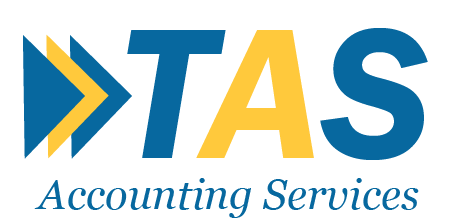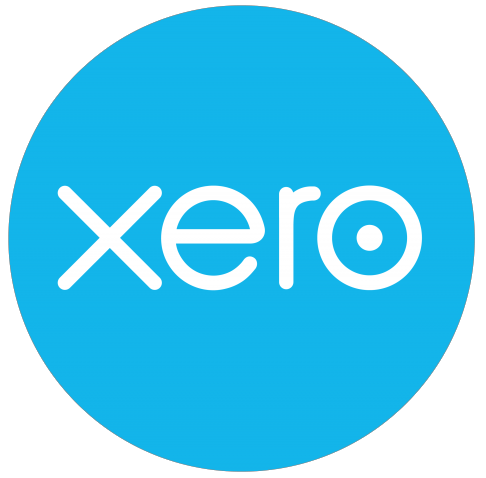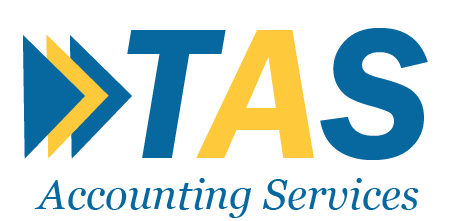Private Limited Company (LTD) in Ireland
A Private Limited Company (LTD) is the most popular structure for company formation in Ireland, offering limited liability and ownership flexibility. However, another option is to set up a branch of a foreign company in Ireland, which acts as an extension of a company incorporated outside the country. This guide will cover the key aspects of establishing both a Private Limited Company and a branch in Ireland.
Legal and Regulatory Framework
Taxation and Financial Reporting
Operational and Compliance Considerations
Advantages
- Ease of Entry: Setting up a branch is often faster and less complex than establishing a new company through the company formation process in Ireland, making it an attractive option for testing the market.
- Cost Efficiency: Operating a branch may be more cost-effective due to lower compliance and administrative costs compared to establishing an independent LTD, especially when considering the cost of company formation in Ireland.
Disadvantages
- Liability Exposure: Unlike an LTD, where liability is limited to the company, the parent company of a branch is liable for all debts, which can pose a financial risk.
- Reputation Risk: Since the branch and parent company are considered the same legal entity, any issues faced by the branch can negatively impact the parent company’s reputation.
Forming a Private Limited Company in Ireland (LTD) offers a range of benefits, including limited liability, a distinct legal identity, and greater flexibility in ownership. For foreign companies, establishing a branch might offer simplicity and cost-efficiency but comes with higher liability risks. Understanding the differences, advantages, and compliance requirements for each structure is crucial when deciding how to proceed with company incorporation in Ireland. Consulting with experts on company registration services will help ensure you meet all regulatory requirements and choose the best option for your business.
GET IN TOUCH
Get Expert Help
Designated Activity Company (DAC)
A Designated Activity Company (DAC) in Ireland is a specific type of company focused on carrying out particular activities as outlined in its constitution. It is ideal for businesses needing to restrict operations to specific objectives, providing a clear legal framework for governance. Here’s a detailed overview of Irish company formation for DACs:
Key Characteristics of a DAC
Compliance and Reporting Requirements
Directors and Management
Establishing a DAC
When to Choose a DAC
Examples of DAC Usage
Advantages
- Clear Operational Boundaries: A DAC’s constitution strictly defines its objectives, which helps ensure the business operates within a clear legal framework, making it ideal for certain company formation in Ireland where regulatory adherence is essential.
- Transparency and Accountability: DACs benefit from increased transparency due to their focused objectives and reporting requirements, making it easier for stakeholders to understand the company’s purpose.
- Governance Flexibility: DACs offer flexibility in governance structures, allowing businesses to tailor their articles of association to meet specific operational needs, a common consideration in company registration services.
- Suitable for Specific Activities: Businesses needing to adhere to specific legal or regulatory frameworks, such as joint ventures or non-profits, often choose a DAC when considering company formation in Ireland.
Disadvantages
- Limited Scope of Activities: The restricted scope of a DAC’s operations can be a disadvantage for businesses that may need the flexibility to diversify.
- Compliance Requirements: DACs face higher compliance and reporting obligations compared to other structures, such as Private Limited Companies (LTDs), potentially leading to increased administrative costs.
- Funding Limitations: Private DACs may have difficulty raising capital since they cannot offer shares to the public, unlike other company formation in Ireland options.
Forming a Designated Activity Company (DAC) in Ireland offers benefits like limited liability, operational clarity, and governance flexibility. However, it also requires adherence to strict regulatory requirements and limits business scope, unlike other types of company formation in Ireland. Consulting with legal and financial advisors is essential to ensure the DAC structure fits your business needs and complies with company registration Ireland laws and regulations.
GET IN TOUCH
Get Expert Help
Company Limited by Guarantee (CLG)
A Company Limited by Guarantee (CLG) in Ireland is a popular structure for non-profit organizations, charities, and clubs that prioritize community and non-commercial objectives. When setting up such entities, understanding the process of company registration in Ireland or company incorporation in Ireland is essential. Here’s an in-depth look at CLGs and the considerations surrounding their formation:
Key Characteristics of a CLG
Compliance and Reporting Requirements
Establishing a CLG
Typical Uses of a CLG
Tax and Regulatory Considerations
Advantages
- Limited Liability Protection: Similar to those forming a limited company, the members of a CLG enjoy limited liability protection, safeguarding personal assets.
- Credibility and Trust: The clear legal structure of a CLG boosts trust from stakeholders. Whether you’re involved in company formation in Northern Ireland or elsewhere, the legal status helps build credibility, especially when pursuing charitable status.
- Perpetual Succession: Like other corporate entities, CLGs benefit from continuous existence, which is a major reason why many choose to setup a company in Ireland in this format.
Disadvantages
- Administrative Burden: Compliance, such as holding Annual General Meetings (AGMs) and filing financial reports, adds costs, much like the requirements associated with company registration services or other types of company formation in Ireland.
- Restrictions on Profit Distribution: Profits must be reinvested into the company’s mission, similar to company formation Ireland requirements for non-profits.
In conclusion, a Company Limited by Guarantee (CLG) provides a legally compliant structure for non-profit entities, ensuring transparency, limited liability, and operational continuity. The process of company formation in Ireland—whether for-profit or non-profit—requires adherence to specific legal and administrative steps. For organizations looking to operate within Ireland, understanding the rules for setting up a limited company in Ireland, especially for charitable or community-based missions, is key to successful incorporation. Whether you’re looking for cheap company registration services or exploring company formation in Ireland with price in mind, a CLG structure offers a solid foundation.
GET IN TOUCH
Get Expert Help
Public Limited Company (PLC)
A Public Limited Company (PLC) in Ireland is an ideal structure for businesses looking to raise significant capital through public investment, offering shares to the general public and often listing on stock exchanges. If you’re considering company registration in Ireland for a larger business venture, here’s an in-depth overview of PLCs, their features, and how they fit into the broader landscape of company formation in Ireland.
Key Characteristics of a PLC
Compliance and Reporting Requirements
Incorporation Process
Listing on Stock Exchange
A key aspect of a PLC is the potential to undergo an Initial Public Offering (IPO), enabling the company to list on a stock exchange. This process includes preparing a prospectus and meeting regulatory requirements—steps more complex than those typically encountered in company formation Ireland cheap services.
Typical Uses of a PLC
Tax and Regulatory Considerations
Advantages
- Access to Capital: By issuing shares to the public, a PLC can raise large amounts of capital, supporting business expansion. This makes it a compelling option for those considering setting up a company in Ireland with plans for substantial growth.
- Enhanced Credibility: As a publicly traded company, a PLC benefits from increased reputation and credibility, making it easier to attract both investors and business partners, similar to the benefits seen in company formation Dublin for larger enterprises.
- Liquidity for Shareholders: A major advantage of a PLC is the liquidity provided to shareholders, as shares can be bought and sold on stock exchanges. This aspect differs from privately held companies often sought for cheap company registration firm in Ireland.
Disadvantages
- Regulatory Compliance: PLCs face stringent compliance and reporting requirements, including extensive financial disclosures and audits. The complexity of these obligations can lead to higher costs, mirroring the challenges seen in company formation Ireland with price concerns.
- Public Scrutiny: Being a publicly traded company subjects a PLC to continuous scrutiny from regulators, investors, and the media. This level of exposure is greater than that experienced by companies undergoing typical company formation rules in Ireland.
- Dilution of Control: Issuing shares to the public can dilute existing shareholders’ control over the company, which is less of an issue in setting up a limited company in Ireland where shares might remain within a smaller group of owners.
A Public Limited Company (PLC) in Ireland offers a powerful structure for businesses aiming to raise significant capital through public investment. With access to public markets, a PLC is well-suited for large-scale operations, yet it requires navigating complex compliance obligations similar to those seen in other forms of company formation in Ireland. Whether you’re considering company formation Dublin or exploring how to set up a company in Ireland for substantial growth, the PLC structure provides the necessary framework for achieving expansive business goals.
GET IN TOUCH
Get Expert Help
Branch of a Foreign Company
A branch of a foreign company in Ireland is an extension of a business that is legally established in another country but seeks to operate and conduct business in Ireland. Unlike a subsidiary, it is not a separate legal entity but is directly tied to the parent company. If you’re considering company formation in Ireland for a foreign entity, here’s a comprehensive overview of the key aspects of establishing and managing a branch:
Key Characteristics of a Branch
Taxation and Financial Reporting
Compliance and Operational Requirements
Establishing a Branch
Comparison with a Subsidiary
When to Choose a Branch
Example Use Cases for a Branch
Advantages
- Simplified Setup: Setting up a branch is typically quicker and less complex than company formation in Northern Ireland or forming a subsidiary. This makes it an attractive option for businesses looking to test the Irish market.
- Cost Efficiency: Branches often have lower administrative and operational costs compared to subsidiaries, making it a more economical option, especially if you’re considering company formation Ireland cheap.
- Direct Control: The parent company retains full control over the branch’s operations, ensuring alignment with its broader business strategy, similar to what you might expect when setting up a company registration services firm.
Disadvantages
- Unlimited Liability: The parent company is fully liable for the branch’s obligations and debts, unlike the limited liability protection available in setting up a limited company in Ireland.
- Taxation and Reporting Complexity: Operating a branch can lead to complex tax and reporting obligations, as it involves navigating both Irish and home country tax laws—something also encountered in company formation in Ireland with price considerations.
Establishing a branch of a foreign company in Ireland provides a cost-effective and simpler entry point for international businesses looking to enter the Irish market. While it offers a more streamlined alternative to setting up a subsidiary, it also comes with the risk of full liability for the parent company. By understanding the legal, tax, and operational requirements, foreign companies can make an informed decision on whether a branch or a company formation in Ireland is the best fit for their strategic objectives.
GET IN TOUCH
Get Expert Help














